Advertisement
Guarana seeds may have benefits, but the potential is lost in processing
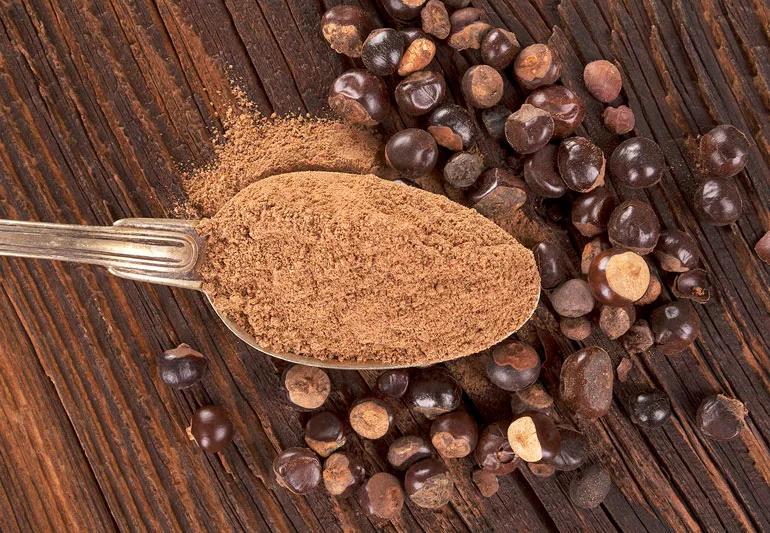
If you’ve spent any amount of time checking out the coolers at your local gas station, you know just how crowded the shelves are with canned and bottled energy drinks. It’s a smorgasbord of vibrant colors, in-your-face graphics and bold letters proclaiming that you’re about to super-charge your day. Promises that you’ll focus better. You’ll have more energy. You’ll. Get. Stuff. Done.
Advertisement
Cleveland Clinic is a non-profit academic medical center. Advertising on our site helps support our mission. We do not endorse non-Cleveland Clinic products or services. Policy
Those claims are the perceived benefits of what seems like an almost magical bean. The guarana seed. The Amazonian plant packed with more caffeine than coffee and — if you believe it — stuffed with miraculous health benefits.
But that’s not exactly the case, says registered dietitian Beth Czerwony, RD, LD.
“The guarana seed itself is a natural food that could have some health benefits. But when it’s processed, packaged and mixed with sugar and other additives, it loses its integrity,” she explains.
Guarana is a popular ingredient in brands like Monster Energy®, Rockstar Energy®, Red Bull® and the Brazilian soda drink Guaraná Antarctica.
What exactly is guarana? And what does it do to your body? Czerwony runs us through it.
Guarana is a climbing plant native to the Amazon. It’s particularly common in Brazil. Its red-orange berries are about the size of grapes and grow in clusters. When they open, the seeds inside are black and give the impression of cartoon eyes looking out at you from the fruit.
Guarana seeds are best known for their very high caffeine content — double the caffeine found in coffee beans.
That caffeine content makes guarana a popular ingredient in energy drinks and sodas, particularly for people who want a coffee-free energy boost. It’s also sold in powder and supplement form and may be an ingredient in some energy bars.
Guarana has long been used by Indigenous populations in South America as an herbal remedy, particularly as a stimulant and appetite suppressant and for its perceived medicinal effects.
Some (limited) studies have suggested guarana seeds may have other health effects, too, like:
Researchers who studied older people in a guarana-growing region of Brazil found that habitual guarana consumption was associated with lower blood pressure, less obesity, lower cholesterol and lower rates of metabolic syndrome.
But there’s a big caveat here, Czerwony says.
“In its natural form, it makes sense guarana could certainly have some health benefits,” she continues. “Most plants and fruits are rich in antioxidants, anti-inflammatory agents and other chemical compounds that we know have the potential to improve your health. But just like with other natural foods, when you start processing them, packaging them and combining them with artificial ingredients and sugar, those benefits don’t translate.”
Advertisement
The thing is, most of us aren’t getting guarana straight from the source. And unless you have access to your own guarana plant (which, true, you can buy online), you’re not getting that fresh-from-the-earth seed to reap those direct health benefits.
Think of it like this: Fresh strawberries are full of health benefits. They’re packed with antioxidants and vitamin C that can boost your brain power, strengthen your immune system and more. But a pint of strawberry-flavored ice cream? Not going to give you the same benefits.
Czerwony explains what processed guarana does to your body.
The guarana sold in supplements and added to your energy drinks has gone through significant manufacturing. That process essentially strips guarana of its natural properties, leaving behind not much other than a potent dose of caffeine.
What’s interesting is that energy drinks that use guarana actually have similar amounts of caffeine to what you find in a cup of coffee. But the caffeine kick you get from guarana isn’t the same as the effects you get from a cup of coffee. Guarana caffeine is more powerful because it reacts differently in your body.
“The caffeine in guarana doesn’t release as soon as it hits your stomach, like the caffeine in coffee does,” Czerwony notes. “It releases more slowly and over a longer period of time.”
So, while you may get a quick boost from a cup of coffee, the caffeine from guarana has a slower-burning, longer-lasting and more intense effect.
That can easily translate to consuming more caffeine than you even realize. And for some people, that can cause some unwanted effects, like:
The effects of excessive caffeination can be alarming, Czerwony adds, and for people who have a high level or anxiety or an anxiety disorder, they can be particularly concerning.
In addition to a hefty serving of guarana-derived caffeine, energy drinks are loaded with sugar. One brand, for example, contains about 27 grams of added sugar per can. For context, The American Heart Association recommends adults limit added sugar to no more than 25 to 36 grams in an entire day.
Combine a sugar rush with the caffeine content, and you have a powerful combination that’s likely to take your blood sugar on a rollercoaster ride.
“Mixing a high amount of caffeine and a high amount of sugar is a perfect storm that probably isn’t going to leave you feeling very well,” Czerwony warns. “Caffeine makes your blood sugars rise, and the extra sugar is going to make it even higher. But that doesn’t last, so then, you’re going to crash.”
For a lot of people, that rush and crash leads to a hypoglycemic (low blood sugar reaction). They have heart palpitations, high blood pressure and feel nauseous.
Advertisement
And that’s just the short-term effect. Keeping up a high-sugar diet can lead to serious, long-term health problems, like high blood pressure, obesity, liver damage, heart disease and more.
If you think the sugar-free versions solve that problem, think again. Some research suggests artificial sweeteners, like the ones used in sugar-free drinks, may actually be worse for your health than regular refined sugar.
If you still choose to reach for an energy drink with guarana for a quick dose of caffeine, Czerwony suggests these limits to keep the impacts lower:
Advertisement
Learn more about our editorial process.
Advertisement

While it isn’t bad for you, celery juice isn’t the detox phenom it’s claimed to be
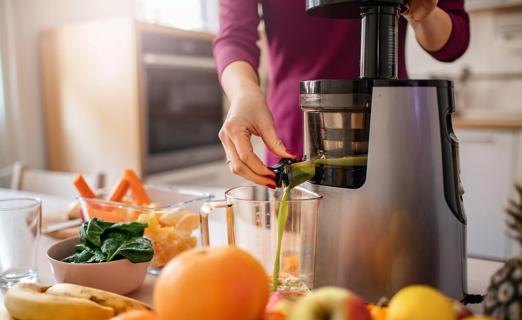
Juicing cleanses don’t target fat loss — and you’ll lose important nutrients in the process
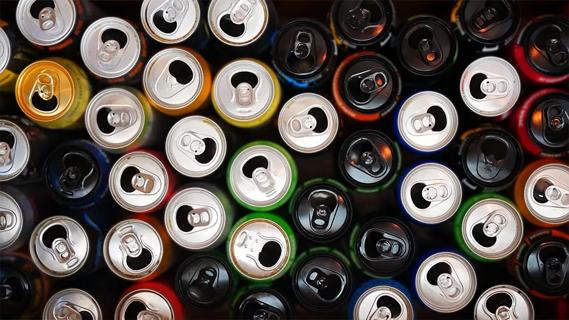
Regularly drinking these sugar-fueled, stimulant-laden beverages can increase your risk of adverse health effects
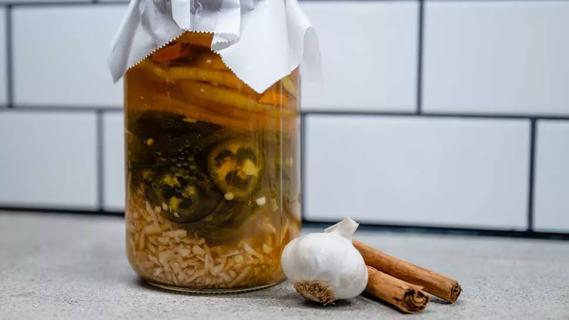
This spicy concoction can do more harm than good, upsetting your stomach and causing painful acid reflux
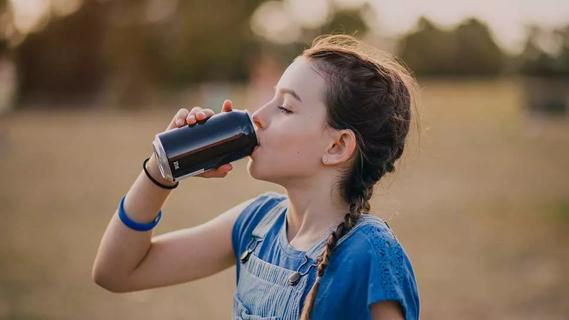
No amount of caffeine is safe for kids under 12, and kids 12 to 17 should be cautious about how much they consume
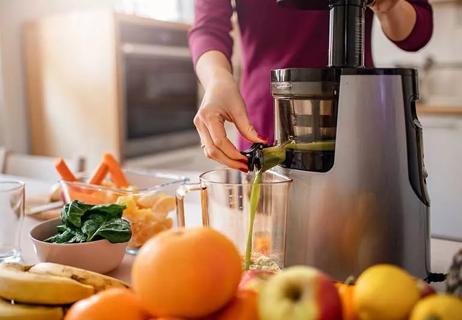
Juicing removes beneficial fiber from fruits and veggies and raises your blood sugar
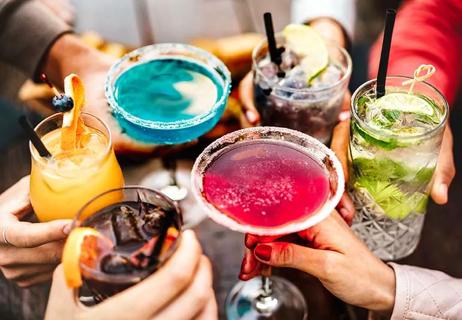
Options for sober social drinking are abundant, but be mindful about additives and triggers

Sports drinks can give your body a boost, but it’s important not to overuse them

Your metabolism may torch 1,300 to 2,000 calories daily with no activity

A gentle touch in all the right places may help drain your sinuses